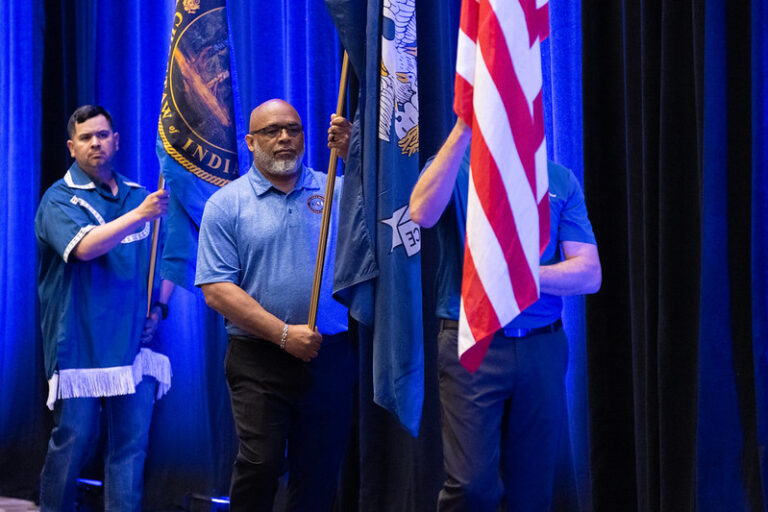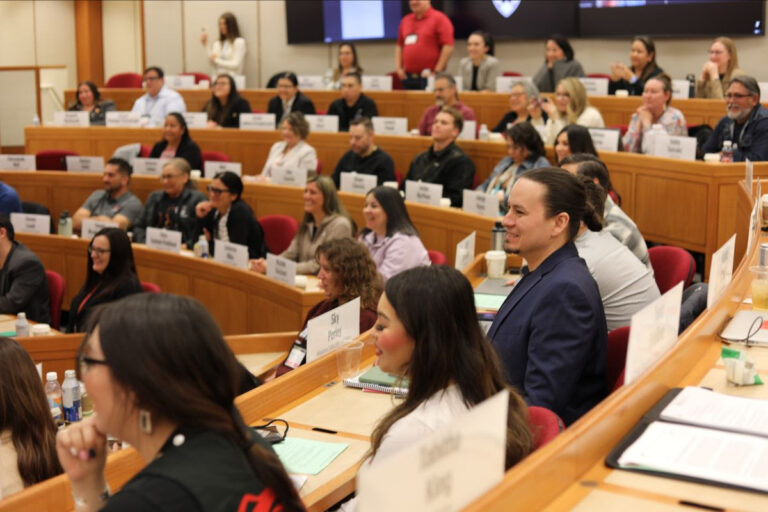1. WEBINAR:
Reopening the Federal Government: Impacts and Policy Guidance for Tribal Leaders
When: Friday, Nov 21, 2025 at 3:00 PM ET
NAFOA invites you to join us for a discussion on how federal government shutdowns affect Native communities and what Tribal leaders can expect as government operations resume.
We will be joined by leading policy experts and researchers from the Brookings Institution to provide Tribal leaders, finance officers, and administrators with actionable insights on:
Advocacy priorities to protect tribal funding and fulfill federal trust responsibilities
- Immediate impacts on Tribal operations, including delays in federal funding, contract support costs, and program disbursements
- Service disruptions across key areas: healthcare, education, law enforcement, and social services
- The reopening process: what to expect as government operations restart and how to navigate the backlog
- Long-term aftermath: addressing deferred maintenance, delayed projects, and strained resources
- Preparedness strategies to strengthen tribal resilience against future shutdowns
2. POLICY ALERT:
Government Shutdown Ends; NAFOA Hosts Webinar on What Tribal Leaders Should Know
The longest federal government shutdown in U.S. history concluded late Wednesday, after 43 days, when President Trump signed legislation to reopen the government. The resolution followed a narrow 222-209 vote in the House, which passed the measure yesterday, after the Senate’s 60-40 vote on Monday to end the shutdown, where eight Senate Democrats joined with Republicans.
3. MUST READ:
Tribal Digital Sovereignty: How Native Communities Are Powering Their Own Tech Future
The digital landscape has become an indispensable platform for modern life, influencing everything from economic development and health care to education and cultural preservation. For Tribal Nations in the United States, engagement with this landscape is inextricably linked to the exercise of their inherent sovereignty.
Take reliable broadband internet, which has become a critical infrastructure—as vital to daily life as utilities like water and electricity. However, this essential service remains inaccessible to many Native American communities, perpetuating longstanding underinvestment in Tribal infrastructure.
According to the Government Accountability Office, as of 2020, 18% of residents on Tribal lands lacked access to broadband service—more than four times the rate in non-Tribal areas at 4%. These disparities are even more pronounced in certain regions: In Arizona’s Tribal communities, 60% of residents lack broadband connectivity, illustrating how geographic and systemic barriers compound to limit access.
Source: Ford Foundation
4. NATIVE AMERICAN HERITAGE MONTH:
Humanity Is Our Greatest Common Denominator
As the vestigial frost from a northern-plains winter gave way to a new spring, a father and his family were forcibly removed from their home. While it may be assumed this removal was for something resembling property foreclosure, it was not. Rather, it was one of many forced removals and relocations of Native Americans by the U.S. that utilized cruel displacement from known and familiar lifeways, killing many through sickness and exertion.
The father was Chief Standing Bear, a respected leader of his Ponca people, and the year was 1877. The removal of the Ponca from their ancestral homelands to the Oklahoma Territory has policy origins in the eastern U.S. This story is one of many Trail-of-Tears-tragedies initiated by the 1830 Indian Removal Act, and one of many such removal, termination, and assimilation policies designed by the U.S. to provide itself with the legal basis to support its unjust actions against Native Americans. These policies have spanned centuries and exemplify the plague of greed, rooted in a self-proclaimed divine entitlement, manifest destiny, and dehumanization.
Author: Kitcki Caroll, Executive Director, United South and Eastern Tribes, Inc. (USET)
5. JOB OPPORTUNITY:
Sr. Accountant II -Commercial/Retail Holton, KS, Prairie Band LLC
The Senior Accountant will support commercial and retail with accounting-based activities by performing tasks related to general ledger transactions, Accounts Payable, Accounts Receivable (with invoice creation), Month-End Close and balance sheet reconciliations. They will also be able to provide support with project setup, planning, analysis, and closeout, and in large job cases, make entries to adjust those with inventories.




